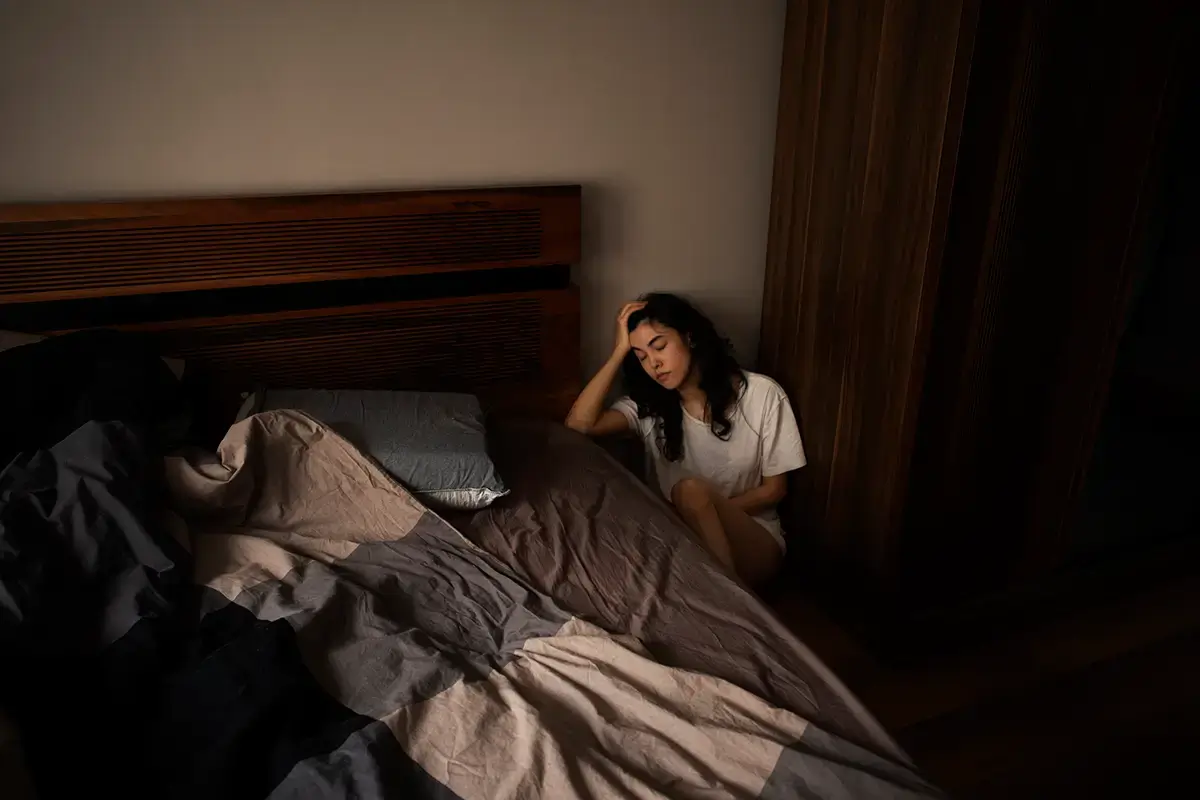Insomnia: How a Sleepless Night Affects Your Health
Sleep is a fundamental pillar for health and well-being. More than just a simple rest, sleep is essential for physical and mental restoration, memory consolidation, mood control, and the regulation of various vital functions. However, for many Brazilians, nights become a battleground against insomnia, a disorder that affects sleep quality and negatively impacts the lives of millions of people.
According to a recent study by the Albert Einstein Israelite Hospital, 72% of Brazilians suffer from sleep disturbances, with insomnia being the main complaint. Among young people, the prevalence is even higher, reaching 80%. These alarming numbers demonstrate the urgent need to raise awareness among the population about the risks of insomnia and the measures that can be taken to combat it.
Understanding Insomnia
Insomnia is characterized by difficulty initiating or maintaining sleep, frequent awakenings during the night, or non-restorative sleep, even with enough hours of rest. This condition can be acute, lasting a few nights, or chronic, persisting for three months or more.
The causes of insomnia are diverse and can be related to physical, psychological, social, and environmental factors. Among the main causes, we can highlight:
- Stress: The stress of everyday life, financial worries, problems at work or in relationships can make it difficult to relax and sleep.
- Anxiety and depression: Anxiety and depression disorders are often accompanied by insomnia.
- Diseases: Chronic diseases such as diabetes, hypertension, heart disease, and respiratory diseases can interfere with sleep.
- Medications: Some medications may have insomnia as a side effect.
- Inadequate sleep habits: Irregular sleep schedules, using electronics in bed, consuming caffeine and alcohol before bed can impair sleep quality.
- Unsuitable sleeping environment: Noise, inappropriate temperature, excessive lighting, and an uncomfortable mattress can make it difficult to sleep.
Consequences of a Poor Night’s Sleep
Sleepless nights have several negative impacts on physical and mental health. Among the main consequences, we can highlight:
- Fatigue and tiredness: Lack of sleep can cause fatigue during the day, making it difficult to concentrate, be productive, and perform physical and intellectual activities.
- Learning and memory difficulties: Sleep is essential for memory consolidation, and sleep deprivation can impair learning and information retention.
- Mood swings: Insomnia can increase irritability, anxiety, and the risk of depression.
- Health problems: In the long term, insomnia can increase the risk of developing chronic diseases such as diabetes, hypertension, heart disease, and stroke.
- Increased risk of accidents: Daytime sleepiness caused by insomnia can increase the risk of car accidents and other types of accidents.
Fighting Insomnia: Tips for a Good Night’s Sleep
Fortunately, there are several measures that can be taken to combat insomnia and improve sleep quality. According to Dr. Drauzio Varella, some important tips include:
- Establish regular sleep schedules: Going to bed and waking up at the same time every day, even on weekends, helps to regulate the body’s biological clock.
- Create a sleep-friendly environment: The bedroom should be quiet, dark, cool, and comfortable.
- Avoid using electronics before bed: The blue light emitted by cell phone, computer and TV screens can interfere with the production of melatonin, a hormone that regulates sleep.
- Exercise regularly: Regular physical activity helps improve sleep quality, but should be avoided in the last few hours before bed.
- Avoid caffeine and alcohol before bed: Caffeine is a stimulant that can make it difficult to sleep, while alcohol can cause initial drowsiness but fragments sleep throughout the night.
- Eat light meals at night: Avoiding heavy and fatty meals before bed can make digestion and sleep difficult.
- Relax before bed: Taking a hot bath, reading a book, listening to relaxing music, or practicing deep breathing techniques can help relax the body and mind before bed.
- Avoid naps during the day: Long naps or late in the day can make it difficult to sleep at night.
- Seek professional help: If the above measures are not enough to control insomnia, it is important to seek professional help. A doctor or psychologist can assess the case and indicate the appropriate treatment.
Insomnia Treatments
Treatment for insomnia depends on the cause and severity of the problem. In some cases, lifestyle changes alone may be sufficient, as mentioned above. In other cases, medication or therapy may be necessary.
Medications: There are several types of medications to treat insomnia, such as hypnotics, benzodiazepines, and antidepressants. The doctor should choose the most appropriate medication for each case.
Therapy: Cognitive-behavioral therapy (CBT) is an effective type of therapy for treating insomnia. CBT helps to identify and modify thoughts and behaviors that may be interfering with sleep.
Insomnia is a serious problem that can affect the quality of life of millions of people. However, there are several measures that can be taken to combat it and improve sleep quality. If you are suffering from insomnia, seek professional help to receive the appropriate treatment.
Sources consulted:
- Albert Einstein Israelite Hospital: https://www.einstein.br/en/Pages/Home.aspx
- Dr. Drauzio Varella: https://drauziovarella.uol.com.br/
- Pfizer: https://www.pfizer.com/
- Ministry of Health: https://www.gov.br/saude/pt-br/














